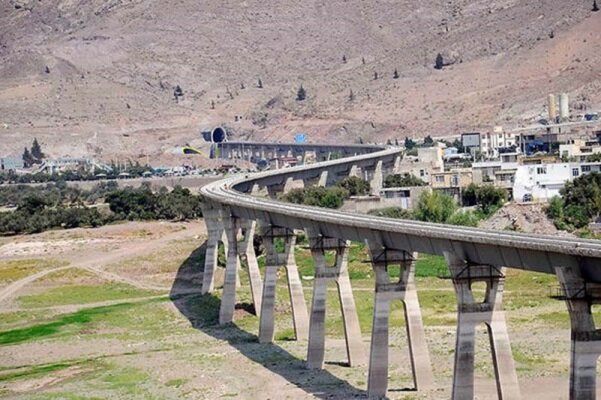According to Iran’s Roads and Urban Development Minister Mohammad Eslami, the Qazvin-Rasht railway will officially be launched today in a ceremony attended by President Hassan Rouhani and several other high-ranking Iranian and foreign guests.
The construction of the Rasht-Qazvin railway project started in 2006, and the 164-km long stretch will further be connected to Anzali and Astara ports.
The route will connect Iran with Russia’s Baltic ports and give Russia rail connectivity to both the Persian Gulf and the Indian rail network.
Eslami noted that the project will reduce a significant share of cargo transportation costs between Asia and Europe.
The official added that concurrent with the inauguration of the Qazvin-Rasht railway, the construction of the Rasht-Astara railroad and another line linking Rasht to Caspian Port then to the port city of Anzali in Gilan province will commence.
According to Eslami, the Rasht-Caspian route will be completed in a year, and the stretch will be extended to Anzali Port in two years.
Once the project is complete, the Caspian Port will become the largest hub in northern Iran and make a major contribution to national and local economic development.
The official said Rasht-Astara project is also slated to go on stream within 4 years.
All the mentioned projects are aimed to contribute to achieving INSTC’s envisaged plans.
INSTC is a 7,200-km-long multi-mode network of ship, rail, and road route for moving freight between India, Iran, Afghanistan, Armenia, Azerbaijan, Russia, Central Asia and Europe.
The plan to establish the international corridor was signed by Iran, India and Russia in 2000 to boost economic and trade ties and reduce the distance for cargo transportation between India and Europe via Iran.
The international corridor would connect the Indian Ocean and Persian Gulf via Iran and links to the Caspian Sea, Russia and northern Europe. The corridor’s operation would cut the costs by 30 percent, while the duration of transportation would be 40 percent shorter.
MR/4560459

























Your Comment